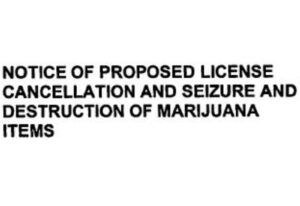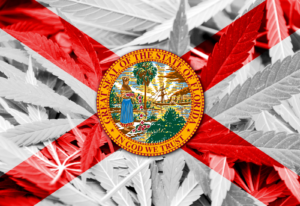
Once upon a time, the cannabis industry had something called the Ogden Memorandum. That was back in 2009, prior to any state legalizing cannabis for recreational use. The Ogden Memo gave prosecutorial guidelines to U.S. Attorneys in medical marijuana states. Many people read the Ogden Memo too cavalierly for the feds’ liking (to wit, over 1,000 new Colorado dispensaries opened that year), and Eric Holder’s office attempted to cool industry expectations with the first Cole Memo in 2011. A few years later, after Colorado and Washington legalized adult use cannabis, we got the second Cole Memo and its famous eight federal enforcement priorities to help guide state lawmaking. The second Cole Memo, which everyone just called the “Cole Memo”, lasted an astonishing 4.5 years until Jeff Sessions rescinded that guidance in early 2017, with a memo of his own. The Sessions Memo effectively reset everything to a primitive ground zero, lecturing that “marijuana is a dangerous drug and marijuana activity is a serious crime.”
Aside from disrupting longstanding federal policy framework on cannabis, the Sessions Memo directed federal prosecutors “to weigh all relevant considerations” in bringing prosecutions for violations of the federal Controlled Substances Act. As of last week, one such prosecutor gave explicit indications as to what relevant considerations will take priority in his district. That U.S. Attorney was Billy Williams of the District of Oregon. So now we now have the Williams Memo.
The Williams Memo is a thoughtful if somewhat awkward document. In the classic posture, it reserves prosecutorial discretion and promises nothing to anyone. Instead, it explains that lawyers in Mr. Williams’ office will primarily focus on five enforcement priorities when deciding whether to enforce the draconian federal laws against cannabis operators. Those priorities are:
- Overproduction and interstate trafficking;
- Protecting Oregon’s children;
- Violence, firearms, or other public safety threats;
- Organized crime – including tax evasion and money laundering; and
- Protecting natural lands, natural resources, and Oregon’s environment.
The one that has state compliant operators a little worried is “overproduction,” given that the Oregon legislature has not capped marijuana licenses and does not require verticality in licensees. When I say “a little worried” I mean very little: So far, of the large number of Oregon cannabis and cannabis-adjacent clients my firm represents, I’ve heard from exactly zero of them with concerns over the Williams Memo. The only people I’ve heard from are reporters.
Still, the Williams Memo is important because it could serve as a template for U.S. attorneys in other states, and it illustrates the curious and uncomfortable bind that U.S. attorneys in states like Oregon find themselves. These attorneys are not going to attempt to shutter licensed and compliant cannabis businesses. It would be too costly, too politically hazardous, and ultimately, too late. On the other hand, when you have serious issues of overproduction, and especially interstate leakage, federal actors appointed by “tough on crime” executives may feel compelled to say something. So Williams did.
For states like Oregon, the hardest part about overproduction is that it is driven by significant and unrelenting demand beyond the four corners of the state. This means that if Oregon were to cap marijuana licenses tomorrow, or to shrink the pool of available licenses to a very small number over time, black market activity would persist. Prices for illegal marijuana would rise within Oregon, but there is nothing to suggest that demand would decrease elsewhere. Said another way: As long as there is demand for Oregon marijuana nationwide, Oregon marijuana will ship nationwide.
Federal drug enforcement policy in the U.S. has always focused on the supply side, with abysmal results. (If you’d like to understand the economics of this, there are many years of data and interpretation, e.g. here, here and here.) Still, the federal government refuses to abandon or adequately reform its supply-side policies. For its part, the Oregon legislature recently enacted SB 1544, which funds interdiction of illegal grows at the state level, but the level of funding is unlikely to kneecap black market activity in any real sense. Southern Oregon especially will always be a banana belt for cannabis.
Given market dynamics and the failures of federal prohibition, the Williams Memo does a nice job of walking the line between what Williams’ bosses probably want and what Oregonians definitely want, as demonstrated by Measure 91 and elsewhere. Ultimately, this memo is unique in that is was penned by a U.S. District Attorney, but it’s nothing new. And it really shouldn’t matter much for state-compliant businesses.























